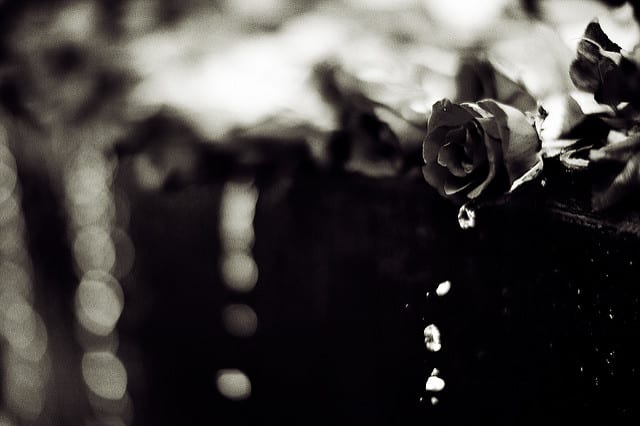Opinion: Why crying is my revolutionary act
News Editor, Courtney Anderson, discusses her expression with depression, therapy and being “strong.”

[title_box title=”Opinion: Why crying is my revolutionary act”]
I’ve cried more this past year than I have my entire life.
It was a development brought on by the stress of my junior year of college, the fact that my community is dealing with police brutality, the death of my grandmother due to lung cancer and my inability to internalize all of this any longer. 2015 was the year my depression held me hostage, refusing to release its insidious grip on my life.
November was when I finally was able to find a way to free myself: I started going to therapy. I was officially diagnosed with major depression and began taking medication a couple of months ago. Therapy allowed me a space to cry, to be vulnerable and to open myself to emotions I had placed borders around before.
Therapy also allowed me to finally see that I’d never had a space to be vulnerable before.
I learned just how limited I was in terms of places I could safely be emotional when I saw the reactions to how I shared my feelings. Oftentimes, I was dismissed, my emotions often ignored or belittled. I learned that a lot of the people I worked with simply wouldn’t see me as someone who might need care, as someone who cries every once in a while.
I started to think back to all those times I’d heard that depression was a “white people” thing and that Black women are “strong” people who don’t have those types of problems. “Strong Black Woman” is an evil phrase, but it is one so often repeated and viewed as a “compliment” that it stops us from being people, attempting to transform us into something inhuman. It is a phrase that we oftentimes are forced to internalized, because if we are not “strong” then we will be crushed. Too many of us don’t see how it’s killing us.
I couldn’t see how it was killing me until it started to push me towards killing myself instead of seeking the help I needed.
The ability and space to not be “strong” and to be vulnerable became something that saved me. But it is also something I was — and often still am — routinely denied.
Vulnerability is not reserved for people like me. That should be no secret. Black women are simply not allowed to be emotional without facing societal consequences. We are often dismissed or reprimanded for displaying emotions our white counterparts display. We are told we are unable of being expressive, that being anything other than “strong” is ultimately harmful to ourselves and our communities (because a Black woman’s duty seems to be to her community only and never herself). To many, depression really is just a “white people” thing and never something a Black woman is permitted.
So, to be a Black woman and to choose to be emotional, vulnerable, to express that pain and not be concerned with maintaining the appearance of “strong,” is act that is completely counter to everything we’ve ever been taught. To express an emotion that is anything other than “sassy” or “tough” is to go against a society that seeks to rob Black women of our ability to be free in our feelings.
I am making the decision to be emotional, to break down and cry when I need to.The role of the “Strong Black Woman” is irrelevant to me.
Edited by Jessica Carr
Featured Image courtesy of creativecommons.org
News editor, Courtney Anderson, has been telling stories for as long as she can remember. From scribbling short stories on the back of pamphlets to excelling in Advanced Placement English courses in high school, Anderson has always been determined to make a career out of writing. Anderson joined TNJN as a freshman and instantly fell in love with online news. She hopes to become an editor for a major online news source one day.
